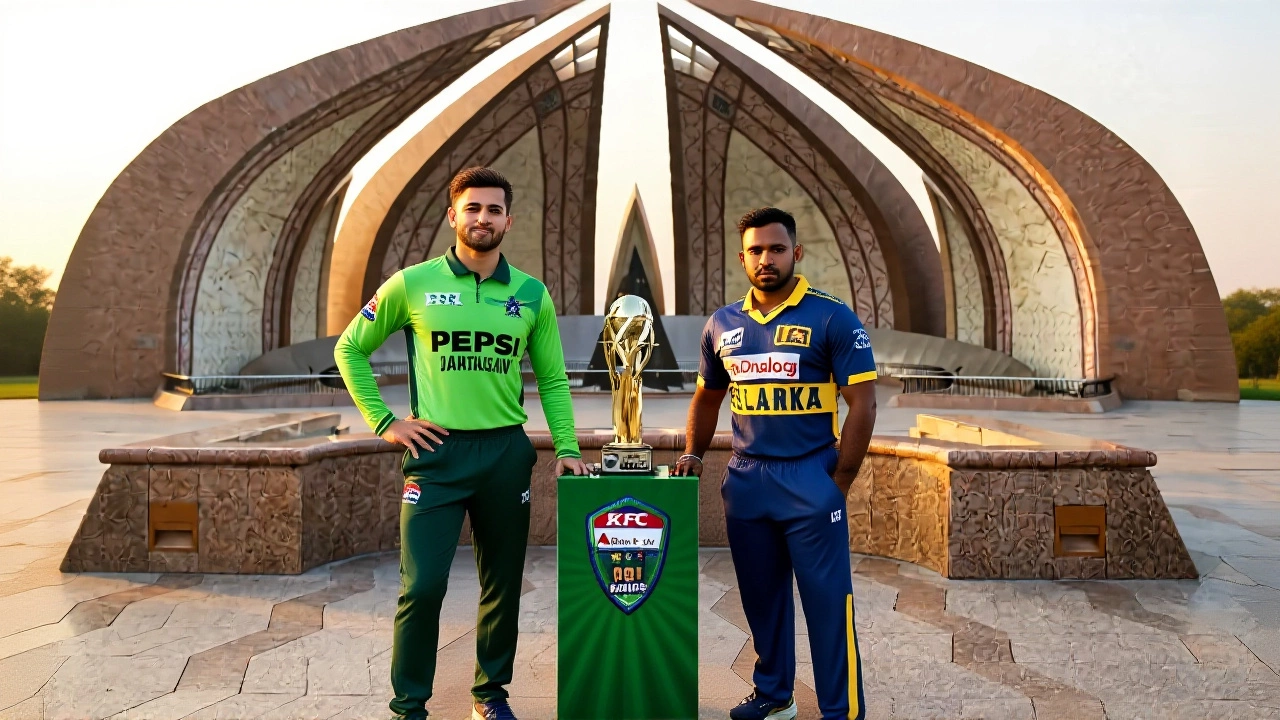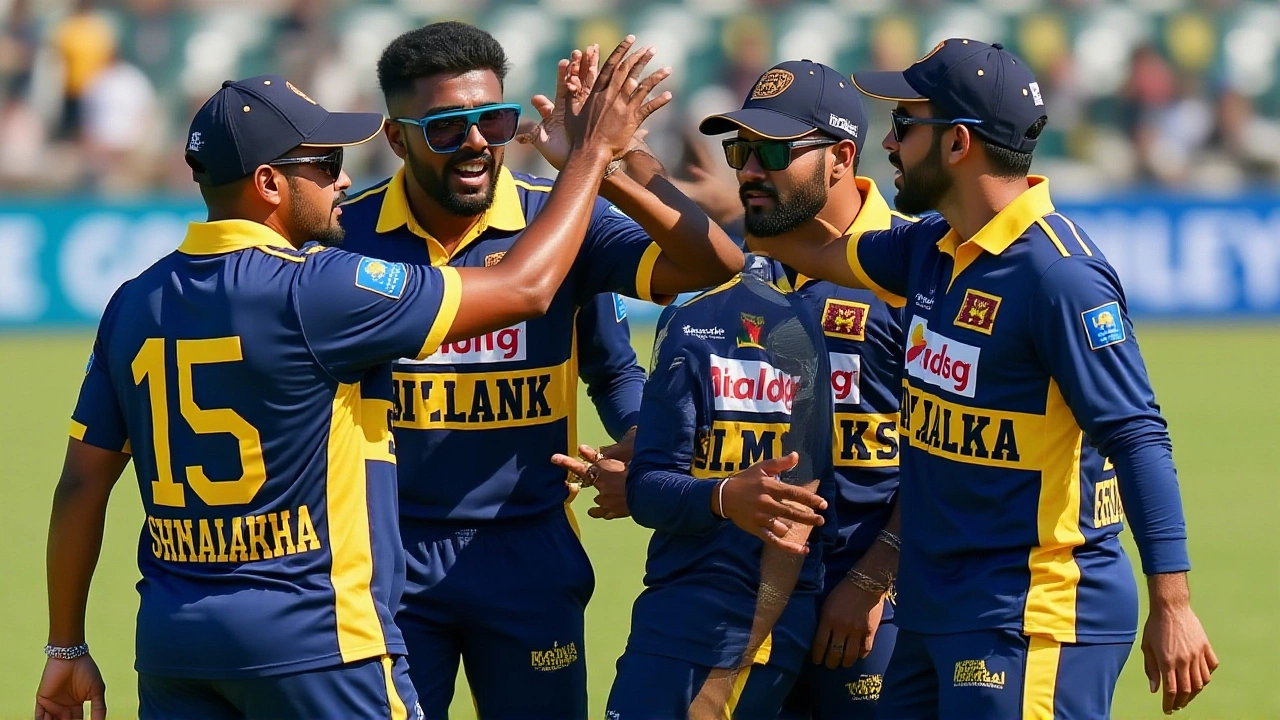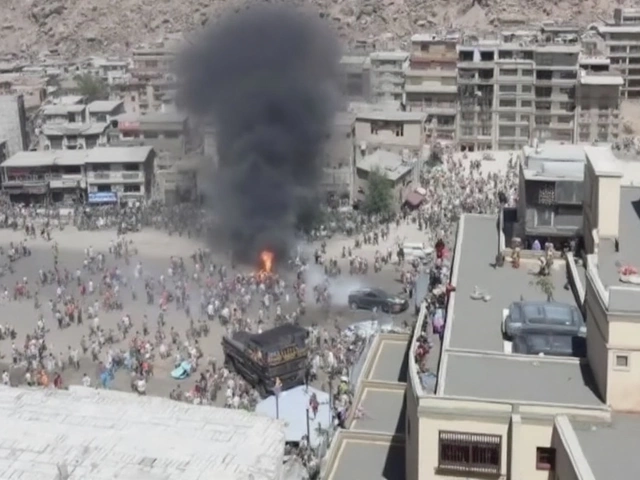When a suicide bomber struck outside a court in Islamabad on Tuesday, November 11, 2025, killing 12 and wounding 27, the world held its breath — especially those following international cricket. The blast echoed painfully close to where the Sri Lanka Cricket (SLC) team was preparing for their second One Day International (ODI) in Rawalpindi, just 17 kilometers away. Yet, within hours, the unthinkable happened: Sri Lanka confirmed they were staying. Not because they were naive. Not because they were fearless. But because they believed, against all odds, that cricket could still be a bridge — not a battleground.
"Your Security Is Our Responsibility"
The night of November 13, 2025, was unusually quiet at the Rawalpindi Cricket Stadium. No fireworks. No fan chants. Just the thud of cricket balls and the hum of armed patrols circling the perimeter. Mohsin Naqvi, Pakistan’s Interior Minister and Chairman of the Pakistan Cricket Board (PCB), walked onto the field unannounced. He didn’t shake hands with officials first. He went straight to the Sri Lankan dressing room. "Your security is our responsibility," he told them, eyes locked. "Your continued tour is a victory for peace and a defeat for terrorism."
He wasn’t just speaking for the PCB. He was speaking for a nation desperate to reclaim its place on the global cricket map. Since the 2009 Lahore attack — when gunmen ambushed the Sri Lankan team bus, wounding six players and sending international cricket fleeing from Pakistan for nearly a decade — the country had hosted its "home" matches in the UAE. Even when Sri Lanka returned in 2019, it was a cautious, guarded affair. This tour? It was meant to be the real return.
Players Wanted to Go Home. SLC Said No.
Hours before the second ODI, at least eight Sri Lankan players and support staff had requested to leave. They weren’t panicking. They were traumatized. The 2009 attack still lives in the team’s memory. One veteran player reportedly said, "We don’t need to test fate twice." The SLC didn’t dismiss them. They listened. They consulted with the PCB, the Sri Lankan High Commission in Islamabad, and Pakistan’s top security officials. Then came the directive: "Continue the tour as scheduled."
And it wasn’t soft. "Any player who returns despite this directive will be replaced immediately," SLC warned in a formal statement on November 12. "A formal review will be conducted. An appropriate decision will follow." Translation: desert the team, and your international career could be on the line.
It was a brutal call. But in cricketing circles, it made sense. The tri-series with Zimbabwe was already locked in. The PCB had spent millions on infrastructure upgrades and security overhauls. A withdrawal would have sent the worst possible signal — that terrorism still dictated where cricket could be played.
President-Level Security, Zero Margin for Error
What followed was a military-grade operation. Army units, paramilitary Rangers, and Islamabad Police Special Branch were deployed around the team’s hotel, the stadium, and every route between Islamabad and Rawalpindi. Snipers lined rooftops. Bomb-sniffing dogs patrolled the pitch. Even the team bus had armored plating added overnight.
"It’s not just about protecting them," said a senior Pakistani security official who spoke anonymously. "It’s about proving to the world that Pakistan is no longer the country it was in 2009. We can host cricket safely — and we will." The Times of India called it "President-level security." That’s not hyperbole. It’s the kind of protection usually reserved for heads of state.

The Game Went On
The second ODI on November 13 unfolded in eerie silence. No fireworks. No national anthem singalongs. Just the sound of bat on ball, and the occasional murmur of a crowd that had come not for spectacle, but solidarity. Pakistan won by 12 runs. Sri Lanka fought hard. Their captain, Dhananjaya de Silva, later said, "We came here to play cricket. And we will play it — with pride."
The third and final ODI on November 14, 2025, was played under the same heavy security. Then came the next challenge: a tri-series with Zimbabwe. All matches in Rawalpindi. No relocation. No backup venues. Just raw, unfiltered determination.
Why This Matters More Than the Score
This isn’t just about cricket. It’s about whether a nation can heal through sport. After 2009, Pakistan became a pariah in international cricket. Stadiums turned to dust. Players moved abroad. Sponsors vanished. Now, with every match played in Rawalpindi, the country is quietly rebuilding its reputation. Sri Lanka’s decision to stay isn’t just a gesture. It’s a vote of confidence — the most powerful one Pakistan has received in 16 years.
There’s a quiet courage here. Not the kind that shouts. The kind that shows up when everyone else has left. That’s what these Sri Lankan players did. And in doing so, they didn’t just play a game. They helped write a new chapter.
Frequently Asked Questions
Why did Sri Lanka insist on continuing the tour despite the bombing?
Sri Lanka Cricket (SLC) believed that withdrawing would validate terrorism and set back Pakistan’s efforts to host international cricket again. The board weighed the security assurances from Pakistani authorities, the presence of military forces, and the symbolic importance of standing with a nation rebuilding its cricketing legacy. They also feared that pulling out would jeopardize the upcoming tri-series with Zimbabwe and damage long-term bilateral relations.
How does this compare to the 2009 Lahore attack?
The 2009 attack on the Sri Lankan team bus in Lahore left six players wounded and led to a decade-long ban on international cricket in Pakistan. This 2025 bombing, while tragic, occurred in Islamabad — not at a cricket venue — and was condemned by Pakistani officials as an isolated act. Unlike 2009, the government responded immediately with overwhelming security and direct engagement with the team, signaling a stark difference in crisis management.
What’s at stake for Pakistan’s cricket future?
If Sri Lanka completes the tour and the tri-series proceeds without incident, it could pave the way for more teams — including Australia, England, and India — to consider returning to Pakistan for full tours. The PCB has invested heavily in infrastructure and security since 2019. A successful 2025 series would be the final proof needed to convince skeptical nations that Pakistan is safe for international cricket again.
What happens to players who wanted to leave?
SLC has warned that any player who leaves the tour against official instructions will be immediately replaced and face a formal review. Depending on the outcome, disciplinary action could include suspension from national selection, loss of contracts, or mandatory counseling. The board is treating this as a matter of professional duty, not just personal safety.
Why is Rawalpindi the main venue instead of Lahore or Karachi?
Rawalpindi was chosen for its proximity to Islamabad’s security infrastructure and its modern stadium facilities. While Lahore has historic significance, its security apparatus is still rebuilding. Karachi, though larger, has faced logistical and political challenges in recent years. Rawalpindi, with its military presence and centralized control, offered the safest and most controllable environment for the tour.
Will this affect future tours by other countries?
Yes — and that’s the point. Sri Lanka’s decision to stay sends a powerful signal. If other teams see that security is robust and the host nation is fully committed, it could trigger a domino effect. Teams like England and Australia, which have been hesitant since 2009, may begin planning tours for 2026. This series is less about the results on the field — and more about the message sent off it.




